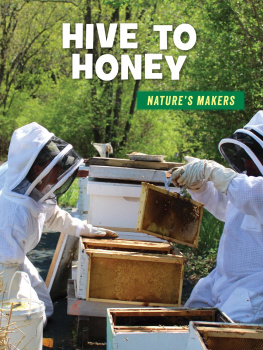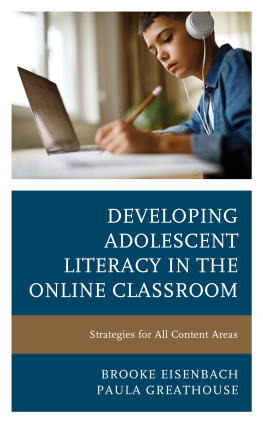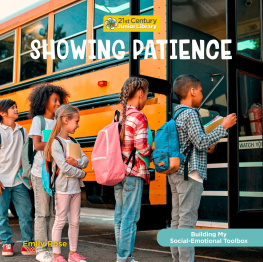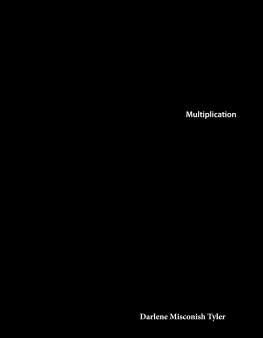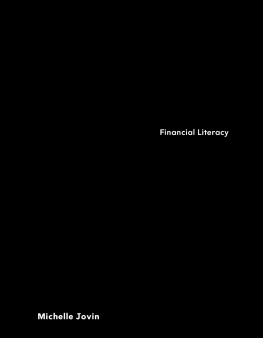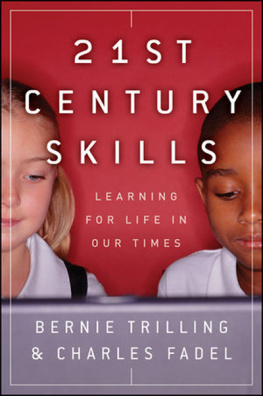Table of Contents
Guide
Published in the United States of America by Cherry Lake Publishing
Ann Arbor, Michigan
www.cherrylakepublishing.com
Content Advisors: Nathan Clarke, owner, Mad Urban Bees; Tim Benedict and Sarah Wells, owners/operators, Orion Organics
Photo Credits: Courtney Oertel, cover, 1, 11, 18, 20, 22; Julie Knutson, 5, 26; SviatlouSS/Shutterstock.com, 6;
Nathan Clarke, 8, 12, 17; Erin McClendon/Shutterstock.com, 14; Courtesy of Mad Urban Bees, 25; rudolfgeiger/
Shutterstock.com, 28
Copyright 2019 by Cherry Lake Publishing
All rights reserved. No part of this book may be reproduced or utilized in
any form or by any means without written permission from the publisher.
Library of Congress Cataloging-in-Publication Data
Names: Knutson, Julie, author. | Knutson, Julie. Natures makers.
Title: Hive to honey / by Julie Knutson.
Description: Ann Arbor : Cherry Lake Publishing, 2019. | Series: Natures
makers | Includes bibliographical references and index.
Identifiers: LCCN 2018036614| ISBN 9781534143012 (hardcover) | ISBN
9781534140776 (pdf) | ISBN 9781534139572 (pbk.) | ISBN 9781534141971
(hosted ebook)
Subjects: LCSH: Bee cultureJuvenile literature. | HoneyJuvenile
literature. | Farms, SmallJuvenile literature.
Classification: LCC SF523.5 .K58 2019 | DDC 638/.1dc23
LC record available at https://lccn.loc.gov/2018036614
Cherry Lake Publishing would like to acknowledge the work of The Partnership for 21st Century Learning.
Please visit www.p21.org for more information.
Printed in the United States of America
Corporate Graphics
ABOUT THE AUTHOR
Julie Knutson is a former teacher who writes from her home in northern Illinois. Researching
these books involved sampling a range of farm products, from local honey to heirloom grains
to...farm-fresh ice cream! Shes thankful to all those who accompanied her on these culinary
excursionsmost notably to the young ones: Theo, Will, Alex, Ruby, and Olivia.
TABLE OF CONTENTS
CHAPTER 1
Getting from Hive
to Honey
W elcome to Madison, state capital of Wisconsin!
This college town swarms with energy. It hosts one of the
largest farmers markets in the United States. It boasts five
lakes, over 260 parks, and the largest concentration of Native
American effigy mounds in the country.
Its also home to Mad Urban Bees, one of the first urban
apiaries in the country. Travel with us to the Badger State
to meet the beekeeper behind the hives, Nathan Clarke.
Nathan will teach us about what it takes to own and operate
a commercial beekeeping business in the middle of a
busy city.
[ 21st century skills library ]
Madison is Wisconsins state capital and second largest city.
Bees pollinate a wide variety of flowers, including fruit-bearing plants.
Whats the buzz on honeybees?
These pollinators are key to our food supply. Bees fly
from plant to plant for nectar . In the process, they spread
pollen and fertilize the flowering parts of plants. This allows
the plant to produce seeds, fruits, or vegetables.
Many of the foods we eatfrom almonds to applesneed
bees for pollination. Without the work of bees and other
pollinators, the stalls at farmers markets and the shelves at
grocery stores would look very different and very colorless.
So whats the buzz on beekeepers?
Nathan is part of a tradition that dates back thousands of
years. Beekeepers manage hives to collect beeswax, bee
pollen, and honey.
In different times and places, these bee by-products
served different purposes. Ancient people sealed and
waterproofed pottery with beeswax. The wax was also used
to make tools, cosmetics, and medicine. Today, many people
take bee pollen to help manage seasonal allergies. And of
course, honey has been used for millennia as a sweetener.
[ Natures Makers ]
Nathans business involves managing everything from hive
maintenance to retail operations.
Beekeepers like Nathan see their relationship with bees as
beneficial for them, the bees, and the broader ecosystem .
Honey of the Pharaohs
Did you know that honey never goes bad?
In 2015, archaeologists unearthed a 3,000-year-old honey pot
in an ancient Egyptian tomb. Amazingly enough, the honey in
the pot was still edible! This is the worlds oldest known sample
of the sweet stuff. It shows that honey was enjoyed by the an
cients just as it is today.
If you could, would you taste this honey of the pharaohs?
[ Natures Makers ]
CHAPTER 2
The Road to
Beekeeping
H ow exactly do you become a beekeeper?
For Nathan, the path wasnt direct. As a child, he enjoyed
nature. He participated in Scouts and went camping. But did
he see himself growing up to be a beekeeper or having an
outdoorsy career? No. He actually wanted to be an
astronaut. And when he grew up, he became a graphic
designer.
When Nathan bought his first house, he wanted to be
closer to his food source. He became interested in
homesteading . Today this means growing food for the
[ 21st century skills library ]
This homesteading Illinois family raises chickens, grows vegetables, and
cans their own food.
Mad Urban Bees hives are located in backyards across the Madison area.
familys kitchen in the backyard garden. It also meant keeping
animalsof all sizes. Nathan got a nudge from his uncle, who
told him, If you have a yard, you should have bees.
As so began his life as a beekeeper.
After Nathans daughters were born, he hung up his job as a
graphic designer to be a stay-at-home dad. He also got serious
about making honeyso much so that he considered turning it
into a business. But to do that, you needed more than a single
backyard hive.
Research, Write, Discuss!
Does your town allow residents to keep backyard chickens or
bees? What are the pros and cons of doing so?
Consider Nathans perspective. Research other points of view on
the topic. Survey people in your neighborhood to gather their
thoughts. If you can, talk to community leaders and local farm
ers for their ideas.
Then, look at the information you have gathered to make up
your own mind! Write a short essay expressing your opinion.
Share it with a classmate.
[ Natures Makers ]
What are the pros and cons of keeping backyard chickens?
Not all towns allow residents to host bees on their property.
If allowed, the city government has a law that outlines the
rules for managing hives. People who want to raise bees need
to apply for a license and agree to those rules.
In Madison, the city voted to officially permit backyard
beehives in 2012.
In the months leading up to this vote, Nathan began a
crowdfunding campaign to raise money for his business
idea. This business would place hives in the backyards of
willing Madison residents. Nathan would care for these hives
like a landscaper tends lawns, and collect the honey and wax
to turn into products.
What I do would not be possible without the
larger community. My hives are hosted by the
community, the bees are foraging in the
community, and the people who buy the honey are
part of the community.
Nathan Clarke
[ Natures Makers ]
CHAPTER 3
What It Takes
A s the owner of Mad Urban Bees, Nathan manages from 80
to 100 hives. This land and the bees and plants that live on it

